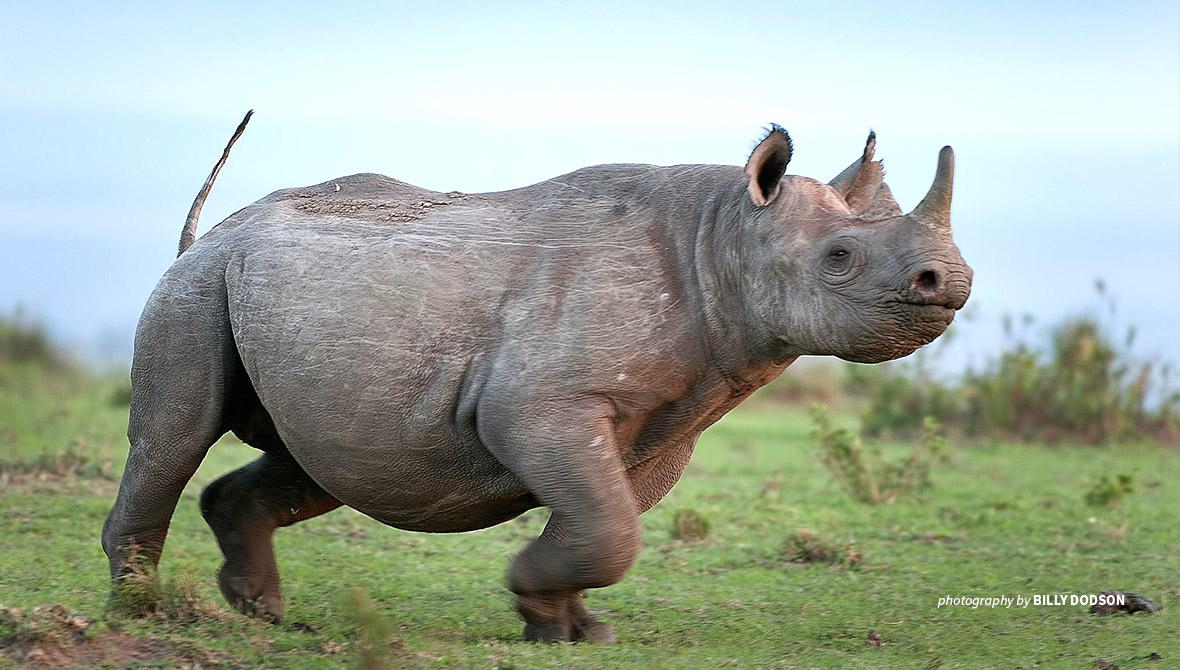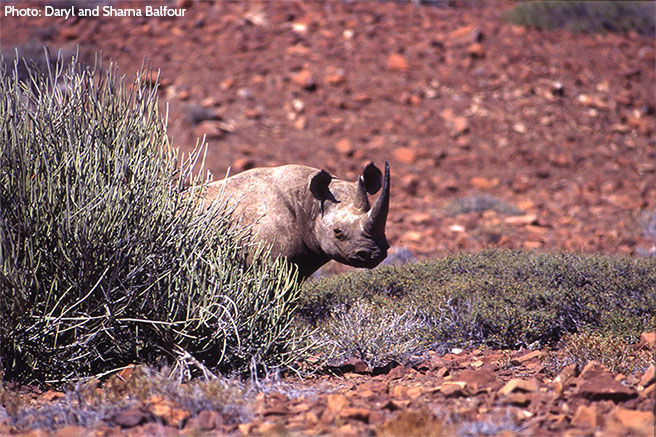Protecting Namibia's Desert-Adapted Rhino

AWF commemorates World Wildlife Day with the launch of the second annual Benjamin Mkapa African Wildlife Photography Awards and a new strategy to save Kenya's southern white rhinos
Though South Africa remains the epicenter of Africa’s poaching crisis, its neighbors are feeling the impact of the illicit wildlife trade as well. Namibia, for example, lost an average of 1.25 rhinos per year between 2009 and 2012, five in 2013… and 24 in 2014.
With 95 percent of the desert-adapted black rhino, a subspecies of the African black rhino, found in Namibia, AWF decided in 2014 to provide support to a Namibian organization, Save the Rhino Trust, through our Urgent Response Fund. AWF supports the Trust’s Southern Team, which deploys monthly to specific “ecozones” within the Trust’s 25,000 sq.-km coverage area in the Kunene and Erongo regions to identify and collect data on individual rhino. The funding supports the deployment of patrols as well as ongoing scout training.

During a recent quarter, the Southern Team traversed nearly 4,800 km of patrols over 41 field days, recording 62 rhino sightings, zero rhino mortalities and two births. The team also conducted joint patrols with the Ministry, community game guards, Namibian police and other regional stakeholders.
Change in leadership
Not all has been smooth during AWF’s year of support. Six rhinos were found poached during 2014, with their horns missing. The Trust then underwent a change in leadership to enhance efficiency and effectiveness in operations. Despite these upheavals, the outlook for the desert-adapted rhino appears positive.
According to Simon Uri-Khob, the new CEO, “The Southern Team now has a dedicated donor it can rely upon. With the help of AWF, we can now breathe a sigh of relief… We are able to continue our valuable day-to-day monitoring and patroling work, which serves as a poaching deterrent and helps protect a critically endangered—and one of the last free-ranging—black rhino populations in this region.”